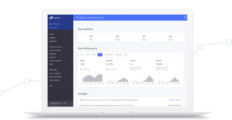 America has a fascination for automobiles perhaps matched only by the desire for real estate. If only petrol was as cheap and abundant as water. But it’s not. The price of gasoline is as volatile as the substance itself. Fuel expenses can quickly burn a hole in your pocket, money that could be better used for more unavoidable expenses. Here’s a checklist of things you can do to avoid wasting fuel.
America has a fascination for automobiles perhaps matched only by the desire for real estate. If only petrol was as cheap and abundant as water. But it’s not. The price of gasoline is as volatile as the substance itself. Fuel expenses can quickly burn a hole in your pocket, money that could be better used for more unavoidable expenses. Here’s a checklist of things you can do to avoid wasting fuel.
Efficient driving saves money
Leave stunts to the stuntmen. You’re not shooting a movie, there’s no camera (except the one from highway patrol that will catch you overspeeding). No kidding. Efficient driving will keep you healthy physically and financially.
- Be sensible. Speeding, rapid acceleration and braking wastes gas. It can lower your mileage by as much as 33% on the freeway, and 5% in city traffic. Sensible driving will also minimize the chances of accidents. Even when you’re insured, the man-days lost to downtime can cost you big time.
- Don’t ride the clutch. Use the clutch only when changing gears or coming to a complete halt. Excessive use of the clutch and shifting gears eats up fuel.
- Use the right gear. Don’t rev up the car and don’t crawl along on high gear either. Follow the recommended gear pattern of 10-15 kms for first gear, 15-25 for second, 25-35 for third, 35-45 for fourth and 50 plus for the 5th gear. As you speed up, you should reach the highest gear to optimize the fuel consumption.
- Stay within speed limits. Other than preventing you from doing harm to yourself and others, staying within speed limits actually helps you conserve fuel. Each vehicle reaches optimal fuel economy at a different speed (or range of speeds), but gas mileage usually decreases rapidly at speeds above 50 mph. Keep in mind that each 5 mph you drive over 50 mph is like paying an additional $0.26 per gallon for gas.
- Keep the weight down. Offload all unnecessary stuff. An extra 100 pounds in your vehicle could reduce your mileage by up to 2 percent. This reduction is based on the percentage of extra weight relative to the vehicle’s weight and affects smaller vehicles more than larger ones.
- Avoid excessive idling. It can use a quarter to a half gallon of fuel per hour, depending on engine size and air conditioner use. Turn the engine off when parked. It only takes a few seconds worth of fuel to restart the vehicle.
Keep your car in shape
Proper maintenance and spare parts can be expensive, but if you fall behind on car maintenance you might be spending more for fuel than you should.
- Keep tires properly inflated. Under-inflated tires can lower gas mileage by 0.3 percent for every 1 psi drop in pressure of all four tires. Properly inflated tires are safer and last longer.
- Keep the engine tuned. Fixing a car that is noticeably out of tune or has failed an emissions test can improve its gas mileage by an average of 4%. Fixing a serious maintenance problem, such as a faulty oxygen sensor, can improve mileage by as much as 40%.
- Replaced clogged filters. Replacing a clogged air filter on an older car with a carburated engine may improve fuel economy 2 to 6 % under normal replacement conditions or up to 14% if the filter is so clogged that it significantly affects driveability.
Little things matter
Those seemingly unimportant decisions that you make in a normal driving day can add up to a lot if they happen often enough. Some things you need to keep in mind:
- Park in the shade. Gas in your tank will actually evaporate if your car is sitting in the sun for too long. If you can’t find a shady parking spot, then try parking your car so it faces the opposite direction of the sun. Buy a windshield shade as well, and be sure to keep the sun roof closed at all times.
- Park ASAP. Take the first available parking slot. Don’t go round and round in circles trying to look for one that’s more to your liking. Chances are you’re looking for parking space that will minimize the distance you’ll have to walk. Unless you’re parking outdoors and it’s raining, there’s absolutely no excuse for avoiding those extra strides.
- Fill it up all the way and don’t wait to run on empty. A full tank has less ability to vaporize fuel and there is less moisture-laden air (that condenses into water) that can fit. Not only that, there’s a greater chance of damaging the electric fuel pump if by you run the car on less than a quarter of a tank.
Use the car less, or not at all
This, of course, is the best of all. Leave your car at home if you can. Plan its use wisely so you can do in one trip what would usually take you three. Do it regularly and you might be surprised at how much less trips to the gas station you’ll need to make.
- Do it all in one trip. It’s all a matter of scheduling. Do all your errands and shopping when you’re either driving to work, or coming home from work. Resist the urge to drive to the grocery for a single item that’s missing from your recipe. Be creative.
- Create a carpool. Split the cost of gas with a friend or co-worker and cut down on your gas costs by 50%. Take turns on who gets to bring the car for particular days or weeks of the month.
- Public transportation is cool. Unless you have an unhealthy attachment to your car, or you’re a teenager looking to impress, taking the bus or train to and from work is fun. It helps you reconnect with the vibe on the streets and the public pulse. Look for daily, weekly, or even monthly passes to cut down on transportation costs.
- Ride a bike or walk. If the weather outside is glorious, and where you’re going is just a few blocks away, why waste the sunshine or breeze by taking a car? Save your fuel for the rainy days.
Why is fuel conservation important for the environment and economy?
Fuel conservation has significant benefits for both the environment and the economy for the following key reasons:
- Reducing Greenhouse Gas Emissions: Fuel consumption, particularly transportation, significantly contributes to carbon emissions. By conserving fuel, we can decrease pollutants that cause climate change, improve air quality, and reduce the greenhouse gases responsible for global warming.
- Cost Savings for Individuals and Businesses: Using fuel more efficiently can help reduce expenses. Fuel is a major operating cost for businesses, especially those with fleets of vehicles. Lowering fuel consumption can, therefore, lead to substantial savings over time.
- Energy Independence: Countries can reduce their dependence on foreign oil and foster more sustainable energy options by using less fuel. This supports economic stability and security while encouraging the shift towards renewable energy sources.
- Stabilizing Energy Prices: Reduced petroleum demand can help mitigate oil price fluctuations. Stable energy costs benefit consumers and industries relying on predictable prices for budgeting and planning.
- Promoting Sustainability: Efficient fuel usage supports broader sustainability goals. Shifting toward cleaner, more renewable energy options, such as electric vehicles, helps ensure long-term environmental health and economic resilience.
Individuals and organizations can contribute to a more sustainable future by adopting simple practices such as efficient driving, regular vehicle maintenance, and using fuel-saving technologies.
Key Insights
- Efficient Driving Practices: Sensible driving habits such as avoiding rapid acceleration, maintaining consistent speeds, and not overusing the clutch can significantly improve fuel economy.
- Vehicle Maintenance: Regular maintenance, including proper tire inflation, engine tuning, and replacing clogged filters, can enhance fuel efficiency and prolong the vehicle’s lifespan.
- Weight Management: Reducing the weight of unnecessary items in the vehicle can improve fuel mileage, particularly for smaller vehicles.
- Minimizing Idling: Avoiding excessive idling by turning off the engine when parked can save a considerable amount of fuel.
- Smart Parking and Fueling Habits: Parking in the shade, using windshield shades, and filling up the gas tank completely can reduce fuel evaporation and improve efficiency.
- Reducing Car Use: Planning trips efficiently, carpooling, using public transportation, biking, and walking can significantly reduce fuel consumption and overall transportation costs.
FAQ
- How can efficient driving practices save fuel?Efficient driving practices, such as avoiding speeding, rapid acceleration, and unnecessary braking, can improve fuel economy by reducing the amount of fuel wasted during aggressive driving. Maintaining a steady speed and using the appropriate gear also contribute to better fuel efficiency.
- Why is vehicle maintenance important for fuel economy?Regular vehicle maintenance ensures that the car runs efficiently. Properly inflated tires, a well-tuned engine, and clean air filters reduce the amount of fuel the engine needs to operate effectively. Neglecting maintenance can lead to reduced fuel efficiency and increased fuel costs.
- What impact does carrying extra weight have on fuel consumption?Carrying extra weight in the vehicle reduces fuel efficiency because the engine has to work harder to move the additional load. Removing unnecessary items can improve fuel mileage, especially in smaller vehicles where the impact of extra weight is more pronounced.
- Why should I avoid excessive idling, and how does it affect fuel consumption?Excessive idling wastes fuel, as the engine continues to run without moving the vehicle. Turning off the engine when parked or waiting can save a significant amount of fuel, as restarting the vehicle uses less fuel than idling for extended periods.
- How can smart parking and fueling habits improve fuel efficiency?Parking in the shade and using windshield shades can prevent fuel evaporation caused by heat. Filling up the gas tank completely reduces the amount of air and moisture that can cause fuel evaporation and helps maintain fuel pump efficiency, preventing potential damage and ensuring optimal performance.
- What are some strategies to reduce car use and save on fuel costs?Strategies to reduce car use include planning trips to combine multiple errands into one outing, carpooling with friends or coworkers, using public transportation, and opting for biking or walking for short trips. These practices can significantly decrease the frequency of refueling and lower overall transportation expenses.
- How does carpooling contribute to fuel savings?Carpooling allows individuals to share the cost of fuel by taking turns driving, effectively reducing the number of vehicles on the road and the total amount of fuel consumed. This not only saves money but also reduces traffic congestion and environmental impact.
Sources:






















A very good idea that should allow you to save a considerable amount of cash on fuel (up to 10%) is to keep your windows closed when using air conditioning, or even better, stop using air conditioning altogether if it's not really necessary.
Good advice, indeed. Plus, keeping your windows open actually increases drag, which can contribute to higher fuel consumption. Choose whichever is the lesser evil for you - air conditioning or extra drag. But not both, yes?
Here's one more tip: if you have a GPS installed in your vehicle you should have an option to select a route with lowest fuel usage. This may actually take you on some new route that could look like it's out of the way, but in the long run you can save some more fuel cash with that trick.
Drivers’ three most fuel-wasting traits, say the experts at the start-up Automatic, are aggressive acceleration, rapid braking and driving faster than 70mph (110kph). The start-up wants to help motorists save petrol with a device that plugs into a car's standard diagnostic port and transfers data continuously over a Bluetooth connection to a smartphone app
http://econ.st/12Qwq3Y
Leave a comment!